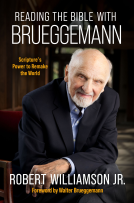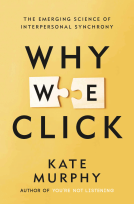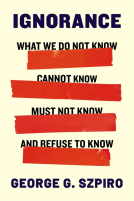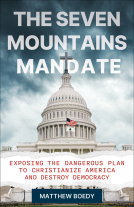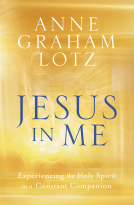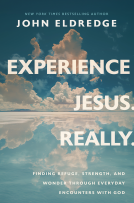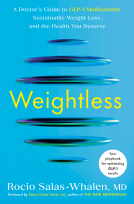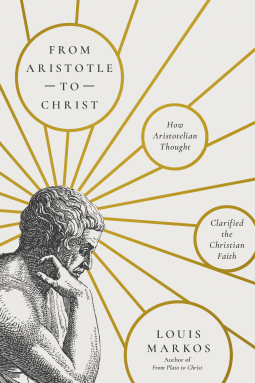
From Aristotle to Christ
How Aristotelian Thought Clarified the Christian Faith
by Louis Markos
This title was previously available on NetGalley and is now archived.
Send NetGalley books directly to your Kindle or Kindle app
1
To read on a Kindle or Kindle app, please add kindle@netgalley.com as an approved email address to receive files in your Amazon account. Click here for step-by-step instructions.
2
Also find your Kindle email address within your Amazon account, and enter it here.
Pub Date Sep 23 2025 | Archive Date Oct 23 2025
Talking about this book? Use #FromAristotletoChrist #NetGalley. More hashtag tips!
Description
Credo Book Award Winner—Natural Theology
Discover how Aristotelian thought has shaped Christianity through history and remains relevant for Christians today
When Christians of any age, country, or denomination debate the nature of the good life, the soul, free will, or design, Aristotle lies behind their logic as well as their rhetoric. Although Aristotle did not have access to the Bible's special revelation, he made full use of general revelation to arrive at deep truths about the nature of God, human identity, and the universe. In the Catholic Middle Ages the spiritual vision that undergirded Dante’s Divine Comedy was strongly indebted to Aristotle’s cosmology, and in the Protestant Reformation and Enlightenment the social vision of a well-run state was equally indebted to his political science.
In a follow up to his well-loved book From Plato to Christ, renowned scholar Louis Markos takes us on a vigorous and celebratory journey through the work of Plato’s greatest student, demonstrating Aristotle’s often unacknowledged influence on the Christian faith. In Markos’s hands, Aristotle is far from an irrelevant ancient philosopher but is instead an important conversation partner for some of history's greatest Christian thinkers and a thoughtful guide to today’s most challenging questions.
With this book, you'll:
- Consider the influence of Aristotle's thought on the Christian faith,
- Carefully analyze several of Aristotle's best-known texts,
- Trace Aristotle's influence upon many key theologians in Christian history, and
- Understand Aristotle's continuing importance for Christians today.
This book is a perfect addition to any classroom that seeks to understand how classical thought intersects with Christianity, both past and present. Grab your copy today and explore the relationship between Aristotelian philosophy and Christianity.
Advance Praise
"Louis Markos has done it again! If anything, this book is even more valuable than his earlier From Plato to Christ. Plato is generally easier to read, and so Aristotle is more in need of retrieval. Markos shows that, while there are places where Aristotle needs correction, his thought is immensely helpful for Christian reflection on God, human nature, virtue, friendship, politics, and rhetoric. May this book receive the wide audience it deserves, for the benefit of biblically grounded Christian faith and culture."
-Matthew Levering, James N. Jr. and Mary D. Perry Chair of Theology at Mundelein Seminary and author of Proofs of God
"When one studies the early church mothers and fathers, their debt to Plato is obvious. Unfortunately, few students and scholars continue reading into the high Middle Ages, where Aristotle's thought becomes dominant, especially among the scholastic theologians, giving the impression that Plato's influence is foremost in the history of Christian thought. Louis Markos shows how Aristotle's influence is not just in scholasticism but all over the Christian tradition, reminding us that we owe a great debt to Aristotle too. This accessible book should be read by everyone interested in theology."
-Greg Peters, professor of Medieval and spiritual theology in the Torrey Honors College at Biola University
"I have been waiting a long time for a book like this one. We live in a difficult era, caught as we are between two extremes. On the one hand, radicals will tell us that if we listen to Aristotle, we will corrupt Christianity. On the other hand, modernism will tell us that we must dispense with Aristotle for the sake of revisioning classical Christianity. Against the radicals, we would do well to remember that our Protestant scholastic forefathers, many of whom were responsible for our Protestant confessions, critically appropriated Aristotle to further fortify the pillars of theology. Against modernism, Aristotle could not be more relevant, assisting us with the tools required to keep at bay everything from monism to materialism. The beauty of Louis Markos's book is the way he introduces the novice to the wisdom of Aristotle to better equip Christianity with a defense of its foundational commitments. In a secular age prone to skepticism, what student can afford not to read Markos and consider the myriad ways Aristotle can clarify what we believe and why?"
-Matthew Barrett, professor of Christian theology at Midwestern Baptist Theological Seminary and author of The Reformation as Renewal
Available Editions
| EDITION | Other Format |
| ISBN | 9781514011324 |
| PRICE | $32.99 (USD) |
| PAGES | 288 |
Available on NetGalley
Average rating from 3 members
Featured Reviews
This is effectively two books. It is an exposition of Aristotle’s thinking, but it is also an exposition of how that thinking influenced Christian thinkers and theological expression.
This means that readers not only learn about Aristotle’s views, but they are also introduced to a wide range of significant Christian thinkers. This ranges from first century figures like Polycarp (Chp 20) to sixteenth century figures like Francis Bacon (Chp 3), to Enlightenment figures like Rousseau (Chp 17) and modern Aristotelian scholars like Alasdair MacIntyre.
Another strong feature of the text was the way that the author explained Aristotle’s disagreements with Plato, and noted Christian preferences for Aristotle’s approach. This included issues like Plato’s insistence that sin is ignorance, and it also included Plato’s scepticism about the value of arts and individual property.
One of the features which worked less well in the book, was that the text would sometimes slip from exposition of history and philosophy into defending an idea. This led to a defence of Intelligent Design in chapter 6 and a defence in chapter 16 of the idea that ‘most wives are happier… (when) led by a … patriarch…’ Both of those ideas are very controversial, and so they both needed far more detailed exploration than the book gave them. Perhaps it would have been better to leave them out of this text, and to explore them in a different book?
There was also an occasional tendency to over-egg the Aristotle analogies and attributions. This occurs in chapter 2 where Transubstantiation is cited as an archetypal example of a doctrine influenced by Aristotle. Yes, that was indeed a common reformation criticism of Catholicism, but is it entirely accurate? The theological language used in official documents (like the Council of Trent) is not the Aristotelian terms ‘substance and accident’ but it is instead the terminology of ‘substance and species.’ Arguably that language owes more to Augustine (eg Bk 7 of the De Trinitate) than it does to Aristotle. Issues like this are far more complex than the book allowed for.
Another example might query whether Christians really got their idea of the four cardinal virtues from Aristotle (or Plato), as Chapter 13 seems to suggest. What we have to remember is that until the Reformation, all Western Christians were reading the Latin vulgate which included a Deuterocanonical book of Wisdom. That book of Wisdom listed the four cardinal virtues as a scriptural text (See chp 8 verse 7). That being the case, how can we be so sure that Christians learned about the cardinal virtues from pagan philosophers, rather than from their Scriptural texts?
Overall, this is a very informative exploration of both Aristotle’s ideas and also of their reception in the Christian tradition. It will be of interest to any readers interested in how philosophical ideas have interacted with Christian faith. The complexity of the ideas means that the book will be enjoyed most by readers with a prior awareness of some of the issues.
(These are honest comments based on a free ARC digital version of the text).
Readers who liked this book also liked:
Robert Williamson Jr.
Christian, Nonfiction (Adult), Religion & Spirituality
Keza MacDonald
Business, Leadership, Finance, Entertainment & Pop Culture, Nonfiction (Adult)
Jim Pojar, Andy MacKinnon, Jamie Fenneman and Leigh Joseph (Styawat)
Nonfiction (Adult), Outdoors & Nature
Karthik Chandrakant, Vibrant Publishers
Business, Leadership, Finance, Computers & Technology

